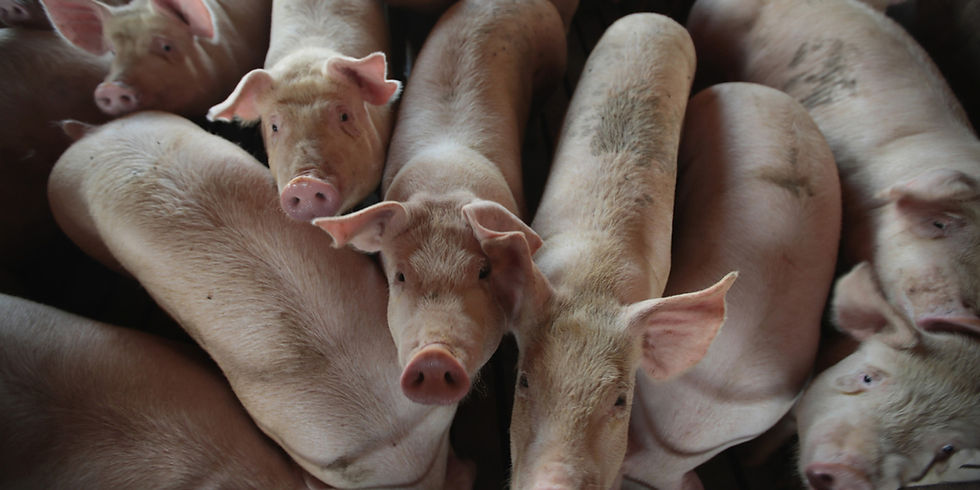Congress vs. California: Is the ‘Save Our Bacon Act’ Set to Overturn State Animal Welfare Laws?
- by AGC News

- Sep 22, 2025
- 2 min read

California’s Prop 12 and What It Means
When Californians approved Proposition 12 in 2018, they set strict rules that pork, veal, and egg products sold in the state must come from animals housed in certain conditions—even if those animals were raised elsewhere. The law fully took effect in January 2024.
A landmark Supreme Court case, National Pork Producers Council v. Ross (2023), tackled whether Prop 12 violated the Constitution’s Commerce Clause. In a 5-4 ruling, the Court upheld Prop 12, deciding that it does not unlawfully burden interstate commerce.
Economic Impacts — Farmers, Consumers, and Meat Prices
USDA data shows real effects since Prop 12 was enforced. Retail pork prices in California climbed nearly 19 percent in June year-over-year. Meanwhile, low-income households reduced their pork consumption by about 22 percent. These statistics come from a recent USDA study shared with the House Agriculture Committee.
Producers claim that complying with Prop 12 costs them $3,500 to $4,500 per sow in upgrades. One economist with the National Pork Producers Council testified that Prop 12 imposes housing and confinement requirements that are expensive and difficult to meet at scale.
The Save Our Bacon Act: Congressional Response
In response to these burdens, the Save Our Bacon Act has been proposed to limit state laws like Prop 12 from imposing their welfare or housing standards on producers in other states when products are sold interstate. Supporters argue that this kind of federal legislation is needed so producers aren’t penalized for state rules they don’t control.
Agriculture Secretary Brooke Rollins has stated that Prop 12 has caused a “partial segmentation in the national pork market,” driving consumer prices up. Chair of the House Agriculture Committee, G.T. Thompson, has described state laws like Prop 12 as “arbitrary and unscientific” in congressional hearings.
Legal Foundation & Constitutional Context
The Supreme Court in National Pork Producers Council v. Ross rejected arguments that Proposition 12 was discriminatory under the “Dormant Commerce Clause,” finding that it placed similar burdens on in-state and out-of-state producers.
While five justices agreed the law did impose burdens, the court held that those burdens were not legally sufficient to overturn Prop 12 under current precedent.
What’s at Risk & What’s Next
If legislation like the Save Our Bacon Act passes, it could roll back or limit how much states can enforce animal welfare regulations on out-of-state producers when those producers want access to large markets like California. That has implications for costs, animal welfare standards, consumer expectations, and the balance of state vs. federal power.
The stakes are high leading up to the next Farm Bill, where this issue may be a focal point. Producers who have already invested to become compliant are pushing back. Advocates for animal welfare warn that weakening state laws could erode protections that many consumers support.
















